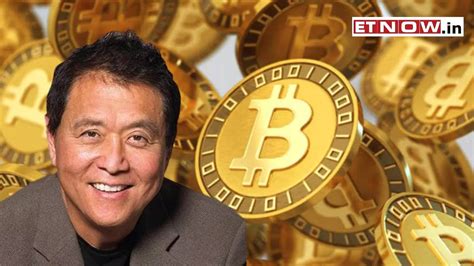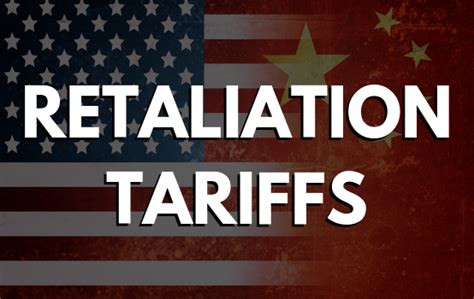
Bitcoin simplifies wealth accumulation, according to Robert Kiyosaki, author of “Rich Dad Poor Dad,” who expressed disbelief at how straightforward getting rich has become with the cryptocurrency. He continues to be a staunch advocate for Bitcoin, gold, and silver, emphasizing their importance as hedges against what he perceives as the mismanagement of the U.S. dollar by the government.
Robert Kiyosaki, the renowned author of “Rich Dad Poor Dad,” has once again reiterated his strong support for Bitcoin, asserting that the cryptocurrency offers an unexpectedly simple path to wealth accumulation. In a recent statement, Kiyosaki expressed his surprise at the ease with which individuals can potentially become rich through Bitcoin investments, contrasting it with traditional financial avenues. His ongoing advocacy highlights his conviction that Bitcoin, along with gold and silver, serves as a crucial safeguard against the perceived devaluation and mismanagement of the U.S. dollar by government entities, specifically the Federal Reserve.
Kiyosaki’s endorsement carries significant weight due to his influence in the financial education sphere. His book, “Rich Dad Poor Dad,” has sold millions of copies worldwide and has shaped the financial perspectives of countless individuals. His consistent messaging about the importance of financial literacy and alternative investments has resonated with a large audience, making his opinions on Bitcoin particularly noteworthy.
The core of Kiyosaki’s argument rests on his belief that the U.S. dollar is being systematically devalued through inflationary policies and unchecked government spending. He views Bitcoin, gold, and silver as tangible assets that maintain their value over time, unlike fiat currencies which are subject to manipulation and erosion of purchasing power. This perspective aligns with a broader sentiment among some investors who are seeking alternatives to traditional financial systems and are concerned about the long-term stability of the U.S. economy.
Kiyosaki has consistently criticized the Federal Reserve’s monetary policies, arguing that they disproportionately benefit the wealthy while harming the middle class and the poor. He contends that the Fed’s practice of printing money dilutes the value of existing dollars, leading to inflation and a reduction in the real wealth of average citizens. In this context, he sees Bitcoin as a decentralized and independent store of value that is immune to the whims of central bankers and politicians.
His pronouncements are not merely theoretical. Kiyosaki has repeatedly disclosed his personal investments in Bitcoin, gold, and silver, demonstrating his belief in their potential as hedges against economic uncertainty. He encourages his followers to educate themselves about these assets and to consider allocating a portion of their portfolios to them as a form of financial insurance.
While Kiyosaki’s views are widely publicized and influential, they are not without their critics. Some financial experts argue that Bitcoin is a highly volatile asset that is not suitable for all investors. They point to the cryptocurrency’s history of dramatic price swings and its vulnerability to market sentiment and regulatory changes. Others contend that gold and silver, while historically considered safe havens, may not always provide adequate returns in a modern investment portfolio.
Despite these criticisms, Kiyosaki remains steadfast in his conviction that Bitcoin, gold, and silver offer a viable alternative to traditional investments and a potential pathway to financial security in an increasingly uncertain economic landscape. He continues to use his platform to educate and inform his audience about the importance of diversifying their investments and protecting their wealth from the perceived risks of the current financial system.
Deeper Dive into Kiyosaki’s Perspective
To fully understand Kiyosaki’s endorsement of Bitcoin, it’s crucial to examine the underlying principles that drive his investment philosophy. These principles are rooted in his critique of conventional financial wisdom and his emphasis on financial literacy, asset acquisition, and an entrepreneurial mindset.
-
Critique of Conventional Wisdom: Kiyosaki’s “Rich Dad Poor Dad” challenges the traditional advice of working hard, saving money, and investing in a diversified portfolio of stocks and bonds. He argues that this approach is insufficient for building true wealth and that it often leaves individuals vulnerable to economic downturns and financial manipulation.
-
Emphasis on Financial Literacy: Kiyosaki stresses the importance of understanding financial statements, taxes, and the principles of investing. He believes that financial literacy is essential for making informed decisions about money and for avoiding the pitfalls of debt and financial scams.
-
Asset Acquisition: Kiyosaki advocates for acquiring assets that generate passive income, such as real estate, businesses, and royalties. He distinguishes between assets and liabilities, defining assets as things that put money in your pocket and liabilities as things that take money out of your pocket.
-
Entrepreneurial Mindset: Kiyosaki encourages individuals to cultivate an entrepreneurial mindset and to seek opportunities to create their own businesses and income streams. He believes that entrepreneurship is the key to financial freedom and that it allows individuals to control their own destinies.
Bitcoin as a Solution to Perceived Problems
In the context of Kiyosaki’s broader financial philosophy, Bitcoin represents a potential solution to several perceived problems with the traditional financial system.
-
Inflation: Kiyosaki views Bitcoin as a hedge against inflation due to its limited supply of 21 million coins. Unlike fiat currencies, which can be printed at will by central banks, Bitcoin’s scarcity is designed to protect its value over time.
-
Government Control: Bitcoin is a decentralized cryptocurrency that is not controlled by any single entity, including governments or central banks. This decentralization makes it resistant to censorship and manipulation, which Kiyosaki sees as a key advantage over fiat currencies.
-
Financial Surveillance: Bitcoin transactions are recorded on a public blockchain, but the identities of the users are typically pseudonymous. This provides a degree of privacy that is not available with traditional financial transactions, which are subject to government surveillance and control.
-
Accessibility: Bitcoin can be easily transferred across borders without the need for intermediaries such as banks or payment processors. This makes it a convenient and efficient way to send and receive money internationally, particularly in countries with unstable financial systems.
Potential Risks and Criticisms of Bitcoin
Despite Kiyosaki’s enthusiasm, it’s important to acknowledge the potential risks and criticisms associated with Bitcoin.
-
Volatility: Bitcoin is known for its extreme price volatility, which can make it a risky investment. The price of Bitcoin can fluctuate dramatically in short periods of time, potentially leading to significant losses for investors.
-
Regulatory Uncertainty: The regulatory landscape for Bitcoin is still evolving, and there is uncertainty about how governments will regulate the cryptocurrency in the future. Changes in regulations could have a significant impact on the price and adoption of Bitcoin.
-
Security Risks: Bitcoin exchanges and wallets are vulnerable to hacking and theft. Investors can lose their Bitcoin if their accounts are compromised or if the exchanges they use are hacked.
-
Environmental Concerns: Bitcoin mining consumes a significant amount of energy, which raises concerns about its environmental impact. While efforts are being made to use renewable energy sources for Bitcoin mining, the process remains energy-intensive.
-
Scalability Issues: The Bitcoin network has limited transaction capacity, which can lead to delays and high fees during periods of high demand. Efforts are being made to improve the scalability of the Bitcoin network, but the issue remains a challenge.
The Broader Context of Bitcoin Adoption
Kiyosaki’s endorsement of Bitcoin is part of a broader trend of increasing adoption of cryptocurrencies by individuals and institutions. Bitcoin has gained acceptance as a store of value, a medium of exchange, and a speculative investment.
-
Institutional Adoption: A growing number of institutional investors, including hedge funds, asset managers, and corporations, are allocating capital to Bitcoin. This institutional adoption is lending legitimacy to the cryptocurrency and driving up its price.
-
Retail Adoption: Bitcoin is also gaining popularity among retail investors, who are attracted to its potential for high returns and its decentralized nature. Cryptocurrency exchanges and wallets have made it easier for individuals to buy, sell, and store Bitcoin.
-
Technological Innovation: The underlying technology behind Bitcoin, known as blockchain, is being used for a variety of applications beyond cryptocurrencies. Blockchain technology is being used to improve supply chain management, voting systems, and other processes.
-
Government Interest: Some governments are exploring the possibility of issuing their own digital currencies, known as central bank digital currencies (CBDCs). These CBDCs would be digital versions of fiat currencies and would be controlled by central banks.
Conclusion: A Call for Financial Education and Diversification
Robert Kiyosaki’s advocacy for Bitcoin reflects his broader belief in the importance of financial education, diversification, and taking control of one’s financial future. While Bitcoin is not without its risks and criticisms, it represents a potential alternative to traditional financial systems and a potential hedge against inflation and government control. Kiyosaki encourages individuals to educate themselves about Bitcoin and to consider allocating a portion of their portfolios to it as part of a diversified investment strategy. Whether one agrees with Kiyosaki’s specific recommendations or not, his message about the importance of financial literacy and proactive financial management remains relevant in an increasingly complex and uncertain economic landscape. His continued emphasis on alternative assets like Bitcoin keeps the conversation going on how individuals can protect and grow their wealth amidst economic challenges.
Frequently Asked Questions (FAQs)
-
Why does Robert Kiyosaki advocate for Bitcoin?
- Robert Kiyosaki advocates for Bitcoin primarily as a hedge against what he perceives as the devaluation of the U.S. dollar due to government mismanagement and inflationary policies. He believes Bitcoin, along with gold and silver, serves as a store of value independent of traditional financial systems. He also sees Bitcoin as a way to bypass traditional financial institutions and gain more control over one’s assets.
-
What are the main criticisms of Kiyosaki’s stance on Bitcoin?
- Critics argue that Bitcoin is a highly volatile asset with a history of dramatic price swings, making it a risky investment. They also point to regulatory uncertainty surrounding cryptocurrencies and potential security risks such as hacking and theft of digital wallets. Some also argue that gold and silver may not provide adequate returns in a modern investment portfolio.
-
What is “Rich Dad Poor Dad” and why is Kiyosaki’s opinion significant?
- “Rich Dad Poor Dad” is a personal finance book written by Robert Kiyosaki that challenges conventional financial wisdom and advocates for financial literacy, asset acquisition, and an entrepreneurial mindset. Kiyosaki’s opinion is significant because the book has sold millions of copies worldwide, influencing the financial perspectives of many people and giving him a large platform to share his investment views.
-
What other assets does Kiyosaki recommend besides Bitcoin?
- In addition to Bitcoin, Kiyosaki consistently recommends investing in gold and silver. He considers these precious metals to be safe-haven assets that can protect wealth during times of economic uncertainty and currency devaluation. He often groups these three assets together as alternatives to traditional investments.
-
What are the potential risks associated with investing in Bitcoin?
- The potential risks associated with investing in Bitcoin include its high price volatility, regulatory uncertainty (potential changes in laws could negatively affect its value), security risks (vulnerability to hacking and theft), and potential environmental concerns related to the energy consumption of Bitcoin mining. Additionally, there are scalability issues within the Bitcoin network that can lead to transaction delays and high fees.
Expanded Analysis: Comparing Bitcoin to Gold and Silver
Kiyosaki’s consistent grouping of Bitcoin with gold and silver as preferred assets warrants a closer examination. While all three are often touted as hedges against inflation and economic instability, their characteristics and investment profiles differ significantly.
-
Gold: Gold has a long history as a store of value, dating back thousands of years. It is a tangible asset with inherent scarcity and is widely recognized and accepted globally. Gold’s price is influenced by factors such as interest rates, inflation expectations, geopolitical events, and demand from jewelers and investors. It typically exhibits lower volatility compared to Bitcoin but may offer limited growth potential in certain economic environments. Gold is also relatively easy to store and trade, although physical storage can incur costs.
-
Silver: Silver shares some characteristics with gold as a precious metal and store of value. However, silver is also an industrial metal with significant demand from various industries, including electronics, solar panels, and photography. This dual role makes silver’s price more sensitive to economic cycles and industrial demand fluctuations. Silver tends to be more volatile than gold but less volatile than Bitcoin. Its lower price point compared to gold makes it more accessible to smaller investors.
-
Bitcoin: Bitcoin is a digital asset with a limited supply of 21 million coins. It operates on a decentralized blockchain network, which means it is not controlled by any single entity. Bitcoin’s price is driven by factors such as supply and demand, adoption rates, regulatory developments, and market sentiment. It is known for its high volatility and speculative nature, offering the potential for significant returns but also carrying substantial risk. Bitcoin’s storage requires digital wallets, which can be vulnerable to hacking and require secure management.
A Table Comparing Gold, Silver, and Bitcoin
| Feature | Gold | Silver | Bitcoin |
|---|---|---|---|
| Tangibility | Tangible | Tangible | Digital |
| Volatility | Low to Moderate | Moderate | High |
| Scarcity | Limited | Limited | Limited (21 million coins) |
| Historical Use | Store of value for millennia | Store of value, industrial use | Relatively new (since 2009) |
| Price Drivers | Interest rates, inflation, geopolitics | Economic cycles, industrial demand | Supply & demand, adoption, regulation, sentiment |
| Storage | Physical storage | Physical storage | Digital wallets (hot/cold) |
| Regulatory Status | Well-established | Well-established | Evolving, varying by jurisdiction |
| Potential Returns | Moderate | Moderate to High | High (but with high risk) |
| Accessibility | Easily accessible | Easily accessible | Easily accessible through exchanges |
The Importance of Diversification
While Kiyosaki advocates for Bitcoin, gold, and silver, financial experts generally recommend diversifying investments across a range of asset classes. Diversification helps to reduce risk by spreading investments across different sectors and asset types that may perform differently in various economic conditions. A well-diversified portfolio may include stocks, bonds, real estate, and alternative investments, in addition to precious metals and cryptocurrencies. The appropriate asset allocation will depend on an individual’s risk tolerance, investment goals, and time horizon. It is crucial to consult with a qualified financial advisor to develop a personalized investment strategy.
The Role of Financial Education
Regardless of one’s investment choices, financial education is essential for making informed decisions and managing money effectively. Kiyosaki’s “Rich Dad Poor Dad” emphasizes the importance of understanding financial statements, taxes, and the principles of investing. Financial literacy enables individuals to assess the risks and rewards of different investment opportunities and to avoid common financial pitfalls. Numerous resources are available for improving financial literacy, including books, online courses, workshops, and financial advisors. Taking the time to educate oneself about financial matters can lead to greater financial security and independence.
Government Response to Cryptocurrency
Governments worldwide are grappling with how to regulate cryptocurrencies like Bitcoin. Some countries have embraced cryptocurrencies, while others have imposed strict regulations or outright bans. The regulatory landscape is constantly evolving, and it is essential for investors to stay informed about the latest developments in their jurisdictions. Regulatory issues that are being addressed include taxation, anti-money laundering (AML) compliance, consumer protection, and financial stability. The way governments choose to regulate cryptocurrencies will have a significant impact on their adoption and long-term viability.
The Future of Bitcoin and Cryptocurrencies
The future of Bitcoin and cryptocurrencies is uncertain, but several trends suggest that they will continue to play a significant role in the financial system. These trends include increasing institutional adoption, technological innovation, and the development of central bank digital currencies (CBDCs). As the cryptocurrency market matures, it is likely that regulations will become more standardized and that new use cases for cryptocurrencies will emerge. However, it is also important to recognize that the cryptocurrency market is still relatively young and that there are significant risks involved. Investors should exercise caution and conduct thorough research before investing in any cryptocurrency.









